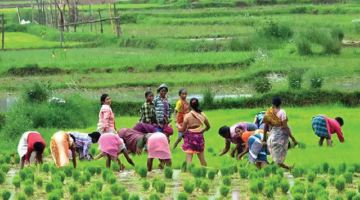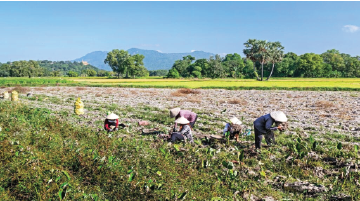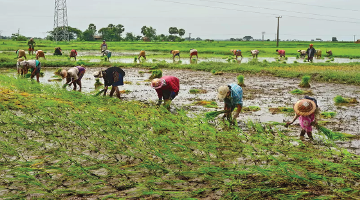SUBSISTENCE TRAINING
Subsistence farming remains an important aspect of India's agriculture sector, and efforts to support small-scale farmers will be critical for ensuring food security and reducing poverty in rural areas.
Subsistence farming is a form of agriculture where farmers produce enough food to meet the basic needs of their family or community, without generating surpluses for sale or export. In India, subsistence farming is practised by millions of small-scale farmers who rely on traditional methods of cultivation and limited resources to grow crops.
India is an agrarian country, where more than half of the population depends on agriculture for their livelihoods. Subsistence farming is prevalent in rural areas, where farmers grow a variety of crops including rice, wheat, pulses, millets, and vegetables. These farmers typically own small plots of land and rely on rainwater for irrigation.
One of the challenges facing subsistence farmers in India is the limited availability of resources, including water and fertilizers. Many farmers in India rely on traditional methods of farming, which can be labour-intensive and less productive. Lack of access to credit and markets also limits the ability of subsistence farmers to improve their livelihoods.
However, efforts are being made to improve the situation of subsistence farmers in India. The government has implemented several schemes to provide subsidies, loans, and other forms of support to small-scale farmers. Organizations are also working to improve access to technology, training, and markets, which can help subsistence farmers increase their productivity and incomes.
Overall, subsistence farming remains an important aspect of India's agriculture sector, and efforts to support small-scale farmers will be critical for ensuring food security and reducing poverty in rural areas.


